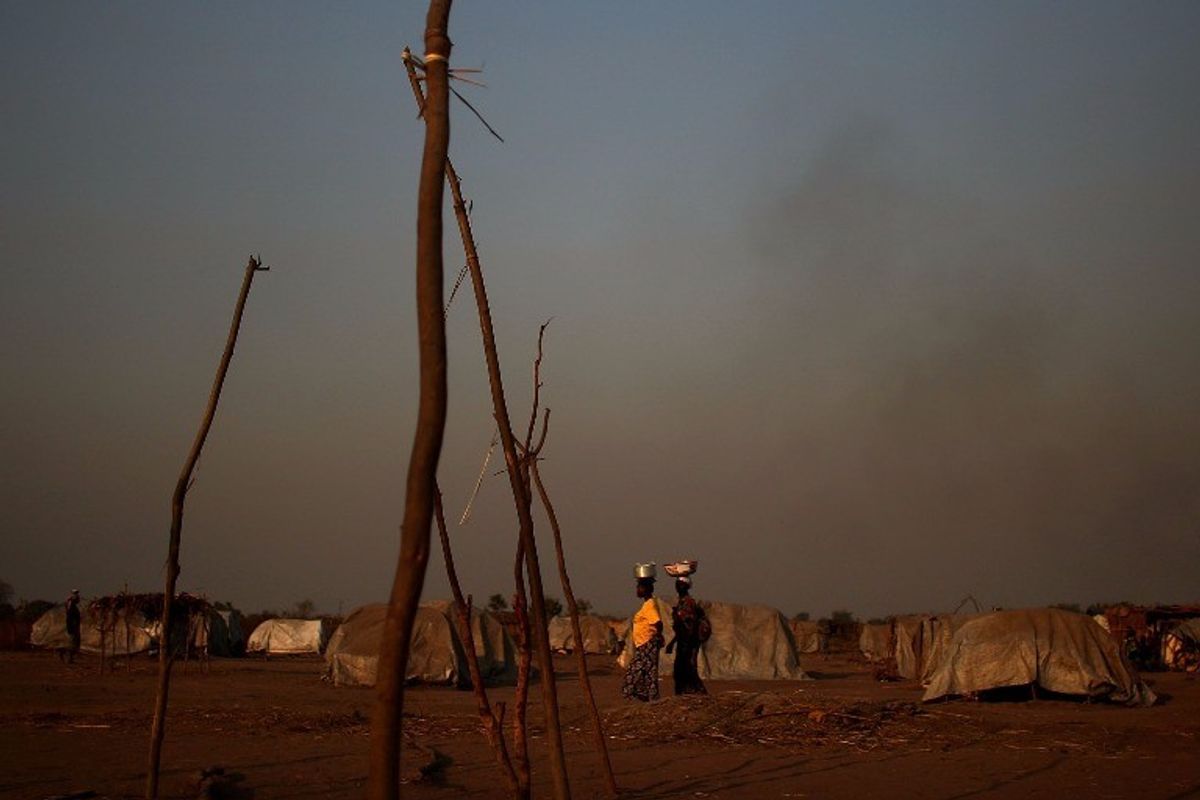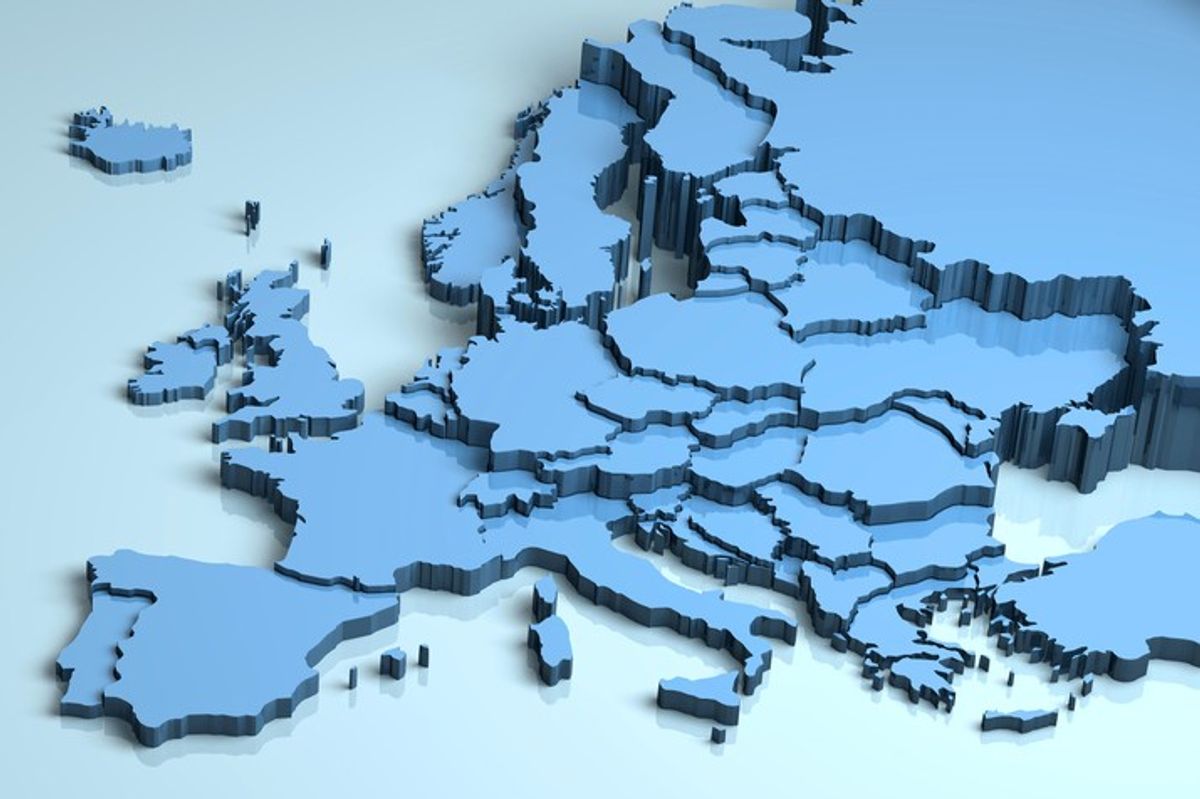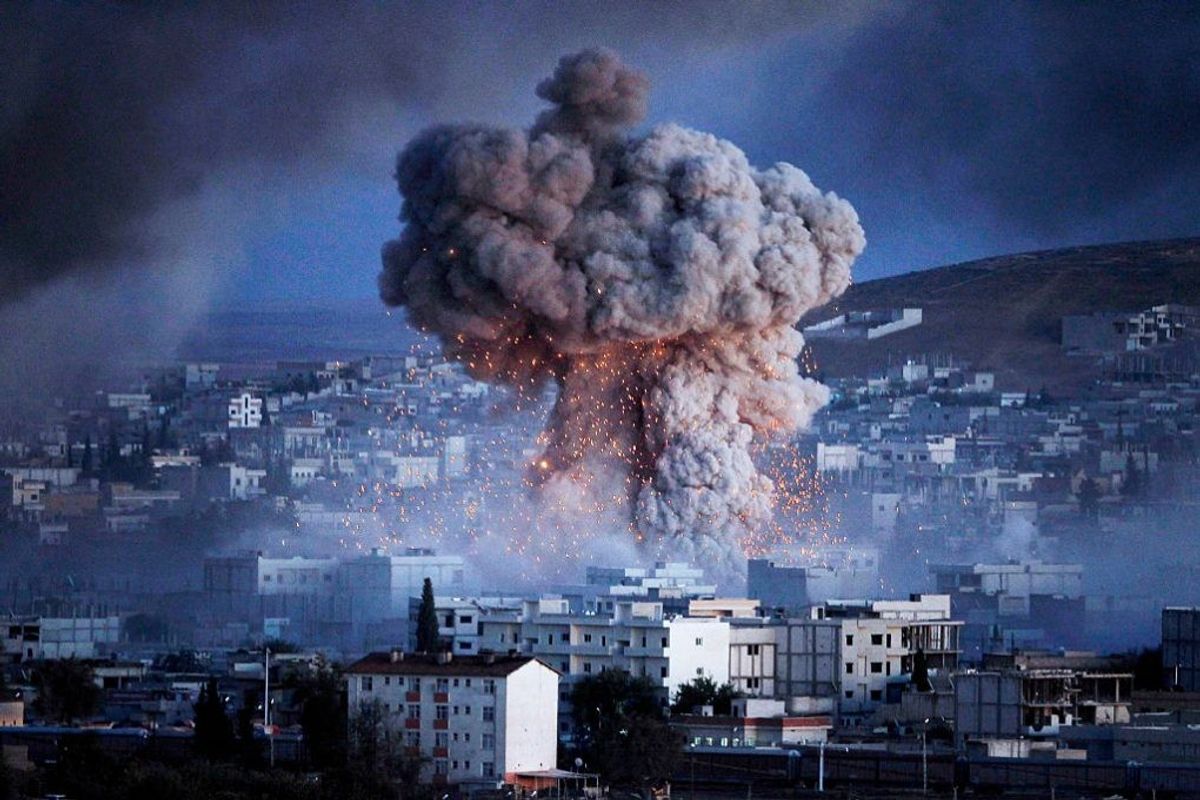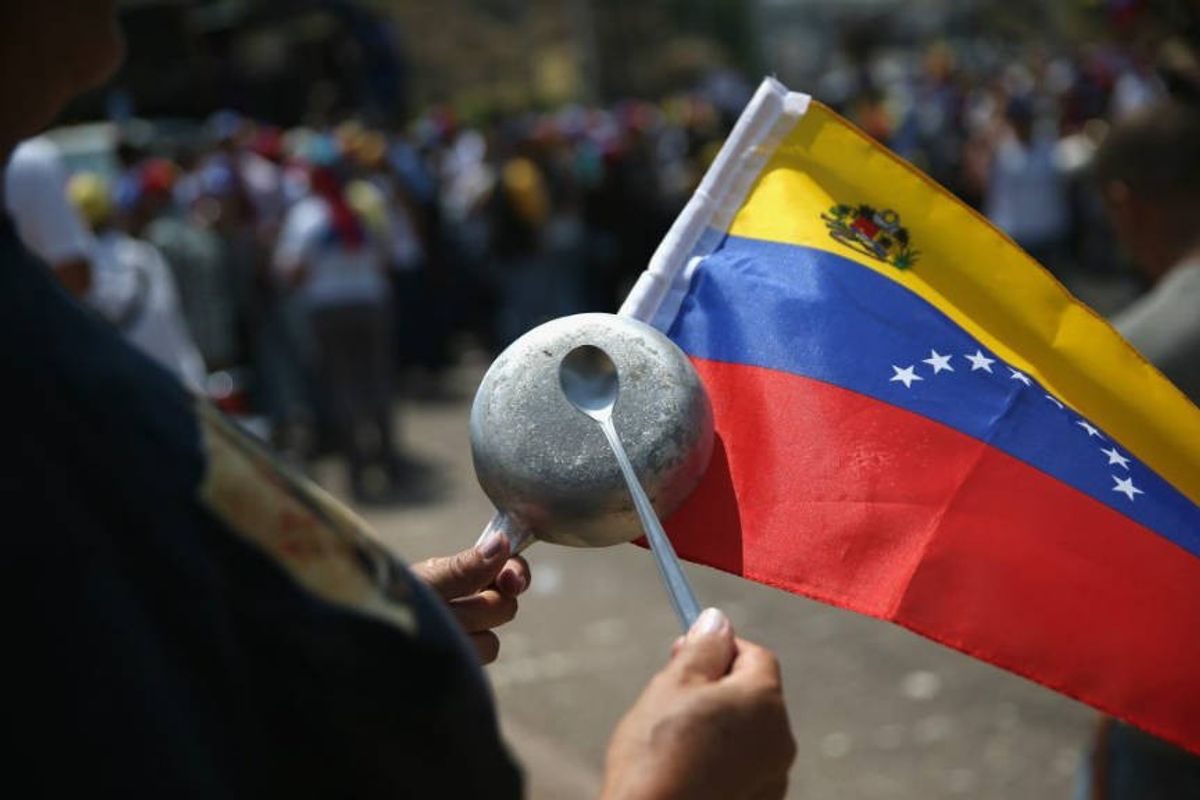The new Fund for Peace 2017 Fragile States Index (FSI) shows South Africa as increasingly unstable, ranking third in stability for Africa, behind Botswana and Ghana, and one of the most-worsened countries in the past decade. Retired Ambassador Herman Cohen, who served as Assistant Secretary of State for African Affairs in the George H. W. Bush Administration, however, told The Cipher Brief’s Kaitlin Lavinder the country’s reputation for instability is inaccurate, and that recent protests against the current government are a sign of a functioning democracy.
The Cipher Brief: What is going on in South Africa right now?
Ambassador Herman Cohen: The ANC [African National Congress] current leadership has lapsed into more or less a corrupt situation, where they see the state-owned enterprises as places where they can profit – not so much by taking money out of the treasury, but by giving jobs and lucrative contracts to their buddies in business, sort of Southeast Asia-style corruption. And this has caused a lot of controversy. It’s a country with a free press, everybody knows what’s going on, so a lot of people are really upset about it within the ruling party and within the intellectual community. They’re saying this has to stop, President [Jacob] Zuma is responsible, he’s profiting from it, they should get rid of him.
This has given South Africa a reputation for being unstable, which I think is fake; it’s not deserved. There are a lot of state-owned enterprises because when the white minority was in power, the Afrikaner side, the Dutch descendants, were the people who had the least income – they were the poorest people of the whites. When they took power in 1948, they created a lot of state-owned enterprises, or they nationalized a lot of enterprises, so as to create an opportunity for their people to get jobs, especially their educated people. That left a lot of state-owned enterprises like the airline, the railway, electric power. Everything was fine until the Zuma government decided this would be a great place to give patronage to friends.
So now everybody hates Zuma because of the corruption. Over the last 15 years, the first opposition has started to appear, because when [former ANC and South African President Nelson] Mandela negotiated the majority rule in the 1990s, the ANC had a monopoly on power because they were the heroes, the people who fought the whites for so many years. But lately, with democracy, an opposition has started to rise, and in the last municipal elections they’ve done very well. They’ve always controlled Western Cape, which includes Cape Town. Now they control the cities of Pretoria and Johannesburg. The people of the ANC say if we don’t stop this, if we don’t get rid of Zuma and stop corruption, we’re going to lose the next elections.
The opposition party – the Democratic Alliance – was dominated by white people and people they call colored, the mixed-race people, people who speak Afrikaans mainly, but now they’re starting to develop black leadership in that party, so, more and more, the party’s looking good to the black population. And it is now becoming urgent to get rid of Zuma and his corrupt team and replace him. That does not mean that the country is fragile. It’s just there are a lot of disputes going on, and I think that shows its strengths – because the press is very free, nobody is clamping down on the press. The Parliament is very free, and there’s a lot of debate. Zuma still controls the majority, but it’s deteriorating, the majority is slowly losing out. The institutions are working, especially the court system. Nobody interferes in cases and they’re very good judges – both white and black. It’s not a fragile country. It’s a strong country because the institutions are doing well and they’re not suffering from this problem of corruption.
TCB: Other than corruption, are there other reasons the Democratic Alliance is gaining ground?
Cohen: When the ANC came to power, there were a lot of expectations. The whites had dominated the economy, they hadn’t done much for the black people, so the expectations of our guys being in power now were that they were going to get a lot of investments. The ANC has done a certain amount of good stuff like bringing water and power to several million black people. They’ve done some good on housing. But still, it seems not to be enough.
Also, the big weakness is the education system. They are still working on the old apartheid education system for blacks, and this is very bad because this is the way people advance in life, through getting a good education. I’ve asked people about it. They said that during the apartheid period, the only place where black people could really rise in life and become socially upstanding was to be a teacher or a principal, and in the black school system. They developed very strong labor unions. As a result, the new black-majority government has not really touched the old black education system, and it’s not providing a really first-class education. This seems to be the major grievance. Therefore, black graduates from high school are not able to qualify for good jobs.
Plus, the provision of infrastructure in the black areas has slowed down over the last 10 or 15 years. Housing starts have slowed down. Additional people connected to electricity has seemed to slow down as well.
TCB: Does the opposition have a particularly charismatic leader?
Cohen: The current president is charismatic. He’s a great speaker. He’s highly appreciated.
TCB: Former Deputy CIA Director of Intelligence Carmen Medina says populist movements are characterized by a belief that oppressive elites are in control and a charismatic leader, but that followers do not refer to themselves as populists. Does South Africa’s opposition conform to this definition of a populist movement?
Cohen: Yes, they’re telling the people – the black people – that you’ve been in power since 1994, and what has the ANC done for you? Two things. One, there has been an elite. The black government said to the white business community, you’ve got to bring black people in because you can’t just keep the business community pure white while the blacks don’t have anything. So, they did. They co-opted a lot of educated black people, people politically connected, and these people became rich. But they didn’t bring in more and more people in mid-management levels, so you have a rich elite while most of the people remain poor. This is the populist angle.
Two, the opposition has controlled the Western Cape province since the beginning because the voters in that area are nonblack – most of the voters are the mixed-race people or the whites. So they’ve controlled the Western Cape and Cape Town, and the area around it has really flourished with good education, and things like that. There’s a comparison: Look what our party has done and look what the ANC nationalist party has done. We’ve done much better.
TCB: Why do many, including the analysts who prepared the 2017 FSI, continue to believe South Africa is unstable or on the path to instability, which you say is inaccurate?
Cohen: Well, it’s not just the ANC that took power. It was a coalition. The African National Congress was the political party, but the labor union COSATU [Congress of South African Trade Unions] and the communist party, which was very popular in South Africa, were also in this alliance. And this alliance is now showing signs of breaking apart. Since this was the core of power in South Africa, people are saying if it’s breaking apart, the whole country is going to break apart. But it’s probably not really breaking apart; they’re just having internal squabbles, which is normal.
TCB: Are other countries facing the same situation, not actual instability but the power struggles that face new democracies?
Cohen: I look at the institutions. Are the institutions OK? Are they remaining? Are they functioning? Have the internal arguments among political leadership, disappointments among the people, done anything to the institutions? If the institutions remain solid, then things will work out.
There’s a book by Ambassador John Campbell [a Cipher Brief expert] called Morning in South Africa. In that book, he makes the same arguments I do. In fact, I got some of the arguments from him. It’s an excellent book.
TCB: How does South Africa contribute to the stability of southern Africa and Africa as a whole?
Cohen: The South African economy is very important to the neighboring countries – Botswana, Namibia, Lesotho, and Mozambique. It provides a lot of jobs for people coming in to, say, work in the mines and then send remittances back home. South Africa also imports from these countries. For example, Lesotho is a great supplier of water and electric power to South Africa. Therefore, money goes into Lesotho. Namibia gets a lot of its power from South Africa, as does Botswana. Now, the flow is reversing; as Namibia and Botswana start to produce a lot more electricity, they’re going to be selling to South Africa. Mozambique sells a lot of electricity and water to South Africa. Basically, it’s an economically integrated region, and the strength of South Africa’s economy permeates throughout the rest of these countries.
TCB: You mentioned Botswana; the FSI named it and Ghana as the two African countries more stable than South Africa. Is Botswana’s stability linked to South Africa’s economy and bilateral trade relations?
Cohen: Yes. It’s really part of this southern Africa subregion, so all of the countries depend on South Africa, and South Africa, to a certain extent, depends on them. For example, there’s a customs union, which is administered by South Africa. Therefore, revenues come in, unlike other African countries where customs revenues disappear, and these countries have a steady flow of customs revenue, administered by South Africa.
TCB: What are some of the top security concerns for South Africa right now, and do they overlap with U.S. interests in a way that would provide an incentive for the U.S. to work with South Africa on, for example, fighting terrorism?
Cohen: There has been virtually no evidence of Islamic extremism in South Africa. There were a couple of incidents. But the U.S. doesn’t look at them and think it has to worry about them. So there are no real security concerns in South Africa, and that includes the rest of the southern African countries.
The South Africans are responsible for securing the sea – not all shipping goes through the Suez Canal; there are some ships that are too big, and now with the price of fuel being very low, it’s cheaper for some shipping lines to go around South Africa. So the security of the shipping lane around South Africa – from the Indian Ocean to the Atlantic Ocean – is very important. The South Africans are carrying out this responsibility quite well, especially in patrolling to help ships in trouble. We help them with training, and we sell them aircraft and things like that.
TCB: Do you have any final thoughts about stability in South Africa?
Cohen: I’m optimistic. All the institutions are holding up beautifully. I can’t see it falling apart.











